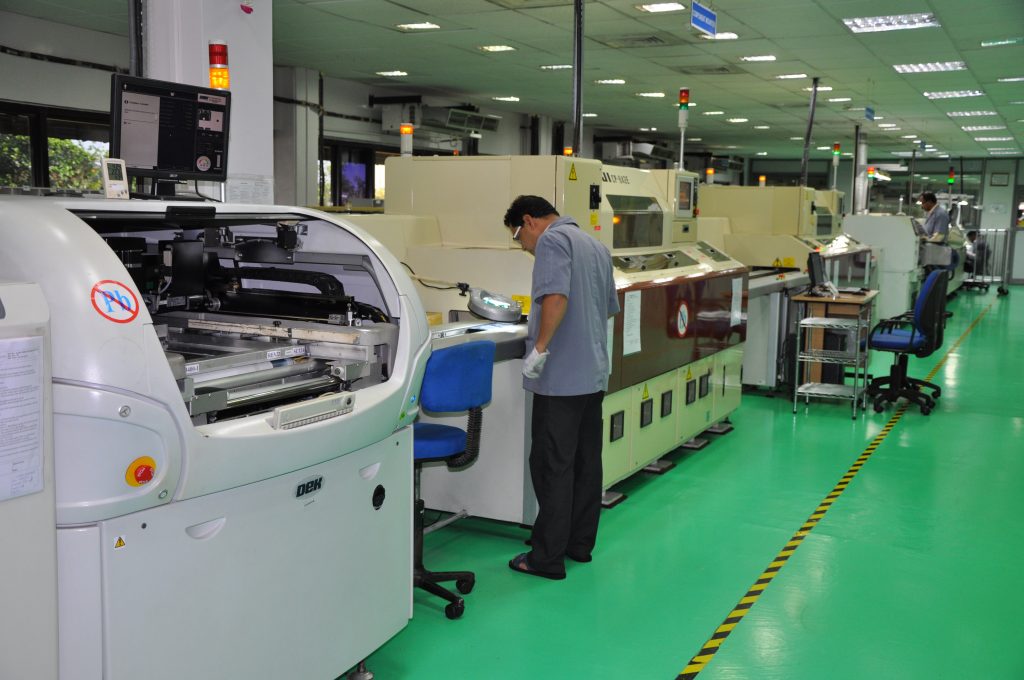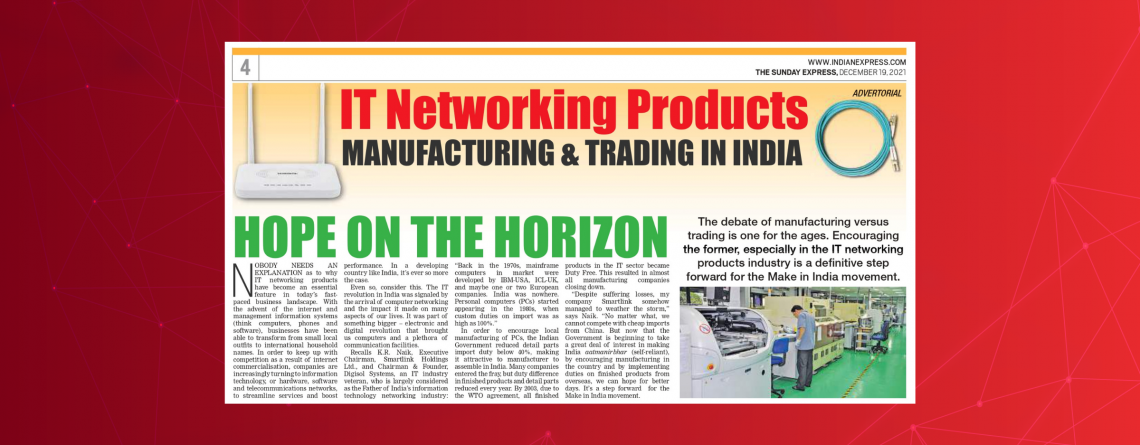Indian Express features the progressive transformation of DIGISOL in the centrespread – Hope On The Horizon
Nobody needs an explanation as to why IT networking products have become an essential feature in today’s fast paced business landscape. With the advent of the internet and management information systems (think computers, phones and software), businesses have been able to transform from small local outfits to international household names. In order to keep up with competition as a result of internet commercialisation, companies are increasingly turning to information technology, or hardware, software and telecommunications networks, to streamline services and boost performance. In a developing country like India, it’s ever so more the case.
 Even so, consider this. The IT revolution in India was signaled by the arrival of computer networking and the impact it made on many aspects of our lives. It was part of something bigger – electronic and digital revolution that brought us computers and a plethora of communication facilities.
Even so, consider this. The IT revolution in India was signaled by the arrival of computer networking and the impact it made on many aspects of our lives. It was part of something bigger – electronic and digital revolution that brought us computers and a plethora of communication facilities.
Recalls K.R. Naik, Executive Chairman, Smartlink Holdings Ltd., and Chairman & Founder, Digisol Systems, an IT industry veteran, who is largely considered as the Father of India’s information technology networking industry: “Back in the 1970s, mainframe computers in market were developed by IBM-USA, ICL-UK, and maybe one or two European companies. India was nowhere. Personal computers (PCs) started appearing in the 1980s, when custom duties on import was as high as 100%.”
In order to encourage local manufacturing of PCs, the Indian Government reduced detail parts import duty below 40%, making it attractive to manufacturer to assemble in India. Many companies entered the fray, but duty difference in finished products and detail parts reduced every year. By 2003, due to the WTO agreement, all finished products in the IT sector became Duty Free. This resulted in almost all manufacturing companies closing down.
“Despite suffering losses, my company Smartlink somehow managed to weather the storm,” says Naik. “No matter what, we cannot compete with cheap imports from China. But now that the Government is beginning to take a great deal of interest in making India aatmanirbhar (self-reliant), by encouraging manufacturing in the country and by implementing duties on finished products from overseas, we can hope for better days. It’s a step forward for the Make in India movement.
The debate of manufacturing versus trading is one for the ages. Encouraging the former, especially in the IT networking products industry is a definitive step forward for the Make in India movement.
For Next Blog: Click here!!!!






